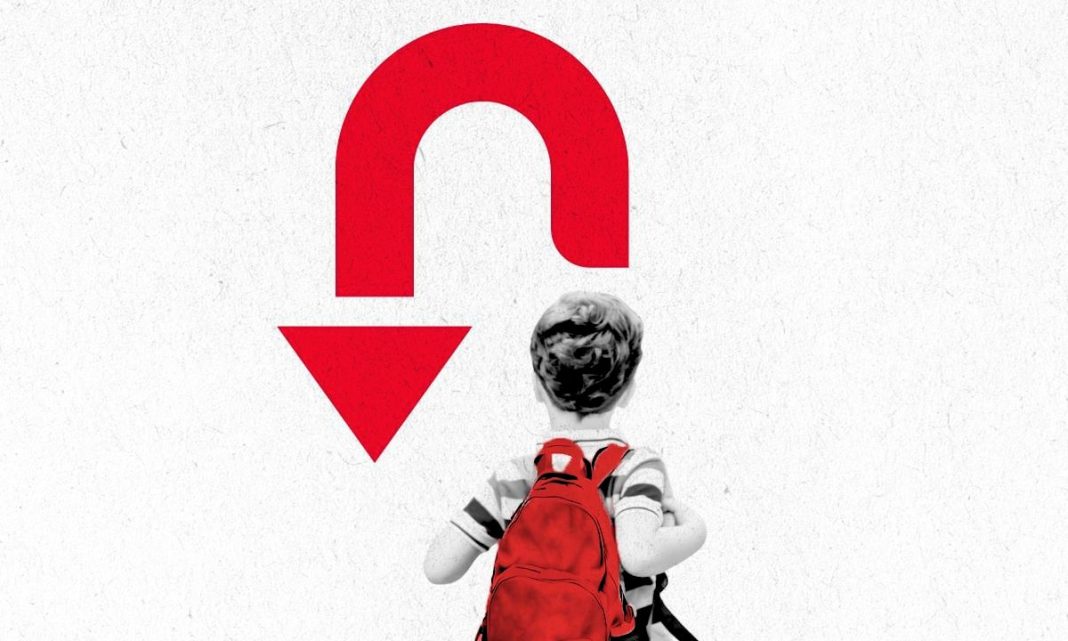There has been a sea change in American education this year.
From cutting social safety net programs and enacting unaccountable voucher programs at the expense of public schools to limiting access to financial aid for higher education, these stormy waters are setting American students adrift, eliminating important protections and creating ever greater barriers to an equitable education that sets young people up for success as adults.
It’s more than just money; as Congress and the Trump administration have instituted perilous funding cuts that reduced support for nutrition programs, limited undocumented students’ access to important programs and dialed back enforcement of civil rights laws, federal agencies have eliminated and undermined vital data and education research. Without this information, there is no way to know how schools are working to address academic and opportunity disparities — particularly for Black and Latino students, multilingual learners, students with disabilities and those from low-income backgrounds.
Get stories like this delivered straight to your inbox. Sign up for The 74 Newsletter
The U.S. Department of Education took a dangerous leap forward with this strategy by inviting states to seek waivers from the federal laws that have, for over two decades, required annual student testing and public, disaggregated reporting of those results. Allowing states to alter established assessment systems and hide data on school quality will leave parents, educators and policymakers without important information they need to help students succeed.
In order for this to work, the federal government will need partners in states to do the dirty work. Unfortunately, history shows they’ll be amenable.
At least three states have already begun the formal process of asking for waivers from accountability.
Oklahoma, which already lowered the bar for proficiency on its state assessments, wants to eliminate annual end-of-year exams and replace them with a series of as-yet unidentified tests throughout the year to measure student achievement in language arts and math or the Classic Learning Test, which covers a more limited knowledge base — primarily the Western and Christian canons — and has been used primarily for homeschool and private school students. The Oklahoma waiver would also mean the state could stop providing testing accommodations and alternate assessments for students with disabilities and English learners. Together, this would make it impossible to measure the academic progress of all students.
Indiana wants to redirect federal funding away from migrant students, at-risk kids, multilingual learners, children in rural areas and the lowest-performing schools. State leaders also seek to change how they rate schools, in a way that would tell families, advocates, policymakers, and others little because of the proposed methodology.
Like Indiana, Iowa wants the power to redirect federal funds away from underserved student groups. But Iowa goes a step further, asking the department to reinterpret the law to let it stop prioritizing federal funds for schools with the highest poverty levels. Not only would this be overreach by the Department of Education — legally, it can’t allow this type of change without congressional approval — it would change the rules for all states, undermining the objective of Title I to increase financial support for students in high-poverty school districts.
It remains to be seen what other ideas states will cook up under the guise of promoting innovation and reducing administrative burdens, and how those initiatives will endanger students’ educational opportunities. But the leaders of 12 states wrote to Washington earlier this year, requesting not only a robust use of federal waiver authority, but a strong deference to state law and a consolidation of federal education funding.
To be sure, there is a place for federal flexibility. The Education Department in the first Trump administration wisely gave a year’s reprieve on annual testing when the COVID-19 pandemic closed schools. The Biden administration offered flexibility for Montana to test a new, innovative assessment model, while maintaining civil rights protections. Current federal law already allows states to experiment with innovative assessments and funding, although few states have taken advantage of these initiatives.
This isn’t some wonky technical issue; annual assessments provide important information that helps parents make educational decisions for their children, teachers to adjust classroom practices and policymakers to craft laws and allocate resources. Strong accountability measures force adults to take a hard look at how schools are serving the most vulnerable students and take action. Targeted funding provides additional opportunities for students from backgrounds long marginalized by America’s education system.
This waiver program is just one in a series of decisions that is putting students and the country’s future at risk. Ending the collection of this data will limit everyone’s ability to see the long-term consequences of other harmful policies.
The Education Department should reconsider its stance on waivers and instead do what’s right for students: ensure that states remain accountable for improving outcomes. Real students’ futures — and America’s future as a nation — are at stake.

